Erin Sybouts: Genetics, DNA Replication, and Knitting
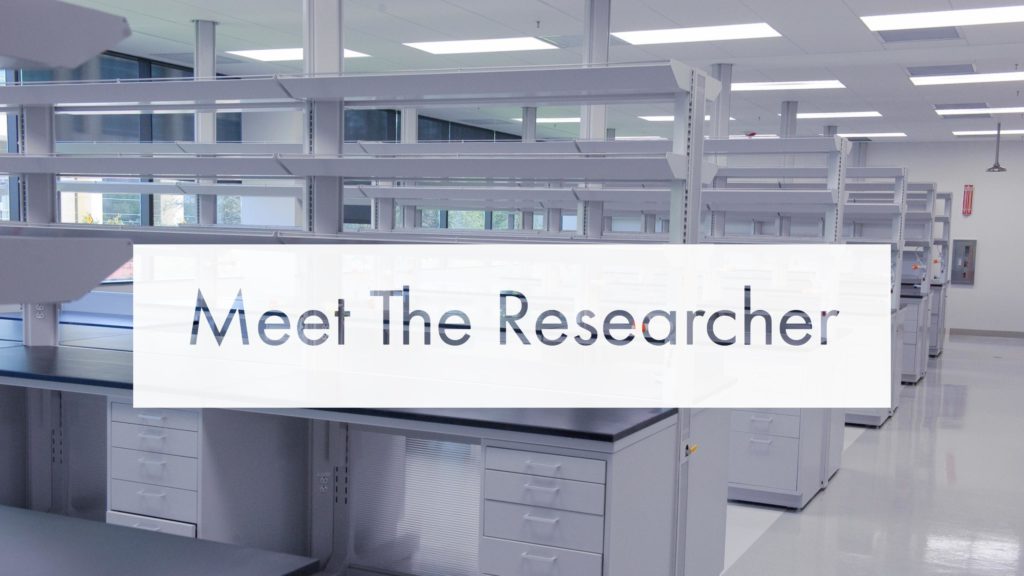
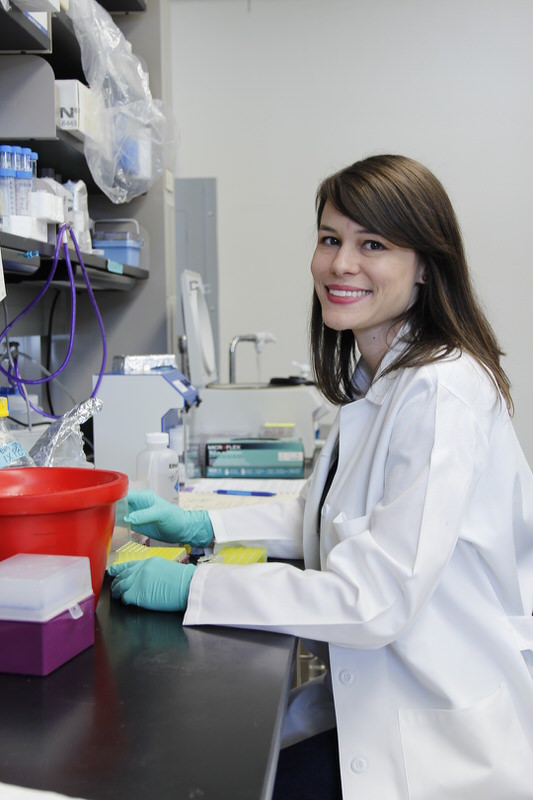 Erin Sybouts has always been interested in genetics as long as she can remember.
Erin Sybouts has always been interested in genetics as long as she can remember.
“Something just clicked, I can’t explain it…it was like the coolest thing we ever learned,” she said thinking back to her sophomore high school biology class.
“It’s amazing to me that all these genes that are basically the same in everybody, but somehow that little variation creates the uniqueness in people, plants, and animals. Even 25 percent of our genome is the same as a banana.”
“Genes are this plan—this extremely complicated plan for life and we still don’t completely understand it,” she said.”
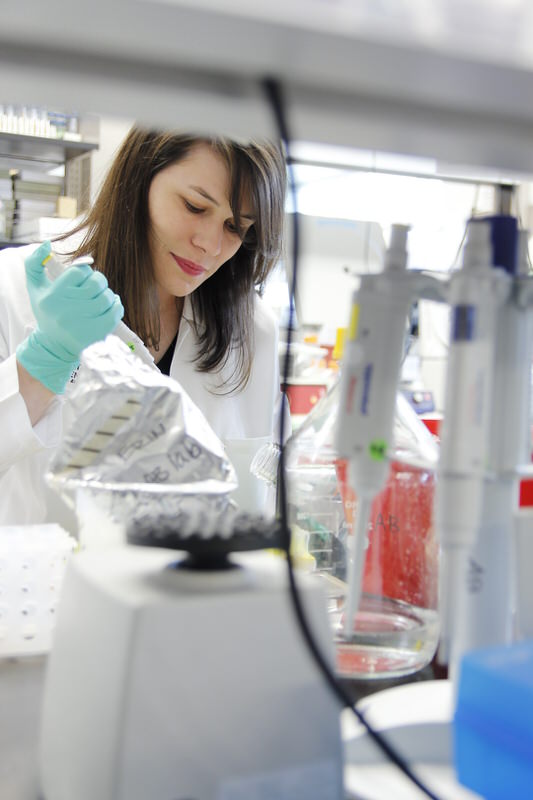 Sybouts first started as a neuroscience major and then became reinterested in genetics after taking a molecular biology class which led her to switch majors to Genetics and Cell Biology.
Sybouts first started as a neuroscience major and then became reinterested in genetics after taking a molecular biology class which led her to switch majors to Genetics and Cell Biology.
While at Washington State University, she also worked in three different labs—first a Food Science and Microbiology lab, then a Zebrafish and Heat Shock Protein lab and finally a Maternal Age Effect and Chromosome Abnormalities lab.
“It was the final lab that really piqued my interest—we were looking at how as you get older, there are issues in the egg that can cause chromosomes to segregate improperly, which can lead to chromosome abnormalities resulting in miscarriage or disorders such as Down Syndrome.”
Three days before the deadline, Erin applied to one Ph.D. program—ours.
“I mentioned to my mentor that I was looking at Master’s programs and my mentor suggested that I look at Ph.D. programs instead—I just wanted to see if I could get in… and I did,” she said.
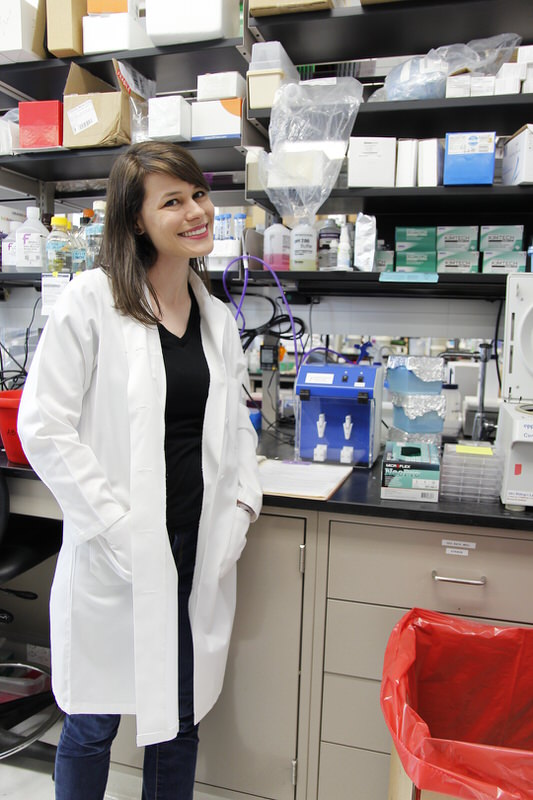 In 2013, she drove cross-country to San Antonio and started school at The University of Texas Health Science Center at San Antonio.
In 2013, she drove cross-country to San Antonio and started school at The University of Texas Health Science Center at San Antonio.
She is currently working in Dr. Alex Bishop’s lab on replication stress and fork stability using a unique technique called DNA combing. Specifically, she is looking at breast cancer and chemoresistance.
“One way that BRCA1 mutant tumors can develop chemoresistance is through 53BP1 mutation which makes them able to replicate with fewer problems. This is important because it allows them to keep growing and growing. We identified another protein that compensates for the loss of BRCA1 and 53BP1 and that’s why those cancers can keep growing. This protein is called BLM,” she said.
Sybouts explained that by inhibiting BLM, they have found that there is disruption in fork stability and replication, causing the cells to be more sensitive to different types of chemotherapies.
“This research is relevant to breast cancer, ovarian cancers, and we are also trying to see if it would be relevant for other cancers as well,” she said.
After graduation, Sybouts is interested in becoming a clinical molecular geneticist.
“I want to help people an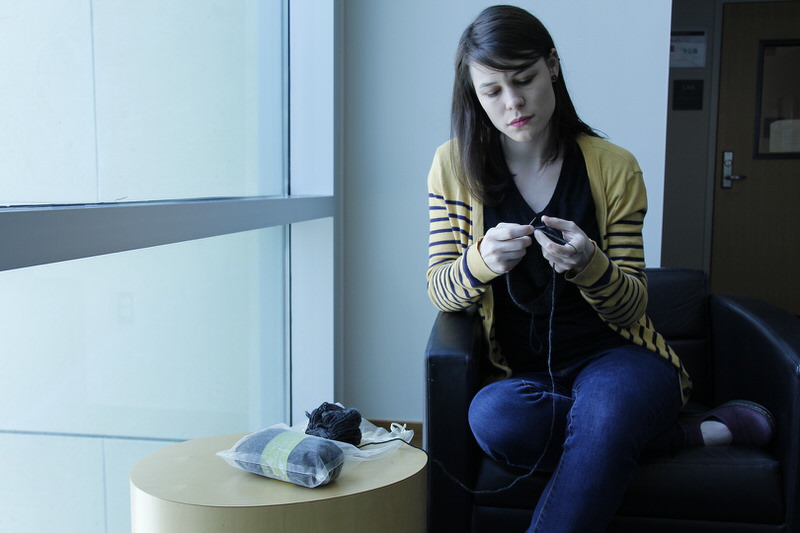 d the best way I know how is with genomics. I’ve seen a lot of people go through treatment, retreatment, and the side effects of chemotherapy. As a clinical molecular geneticist, I could influence physician treatments and define better ways to make prognostic and diagnostic decisions based on a patient’s genetic data.”
d the best way I know how is with genomics. I’ve seen a lot of people go through treatment, retreatment, and the side effects of chemotherapy. As a clinical molecular geneticist, I could influence physician treatments and define better ways to make prognostic and diagnostic decisions based on a patient’s genetic data.”
In her spare time, Sybouts is an avid knitter.
“One day when I was 15 and bored, I started knitting. I taught myself and now I make sweaters, blankets, scarves, stuffed animals, all kinds of things,” she said. “I’d like to start a charity knitting group in the future.”
If anyone is interested in being part of a charity knitting group, please contact Erin.
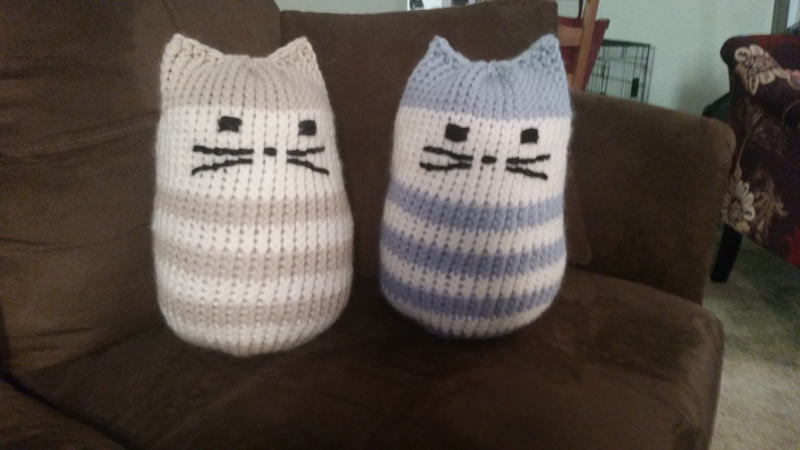
 This article was written by Charlotte Anthony, marketing specialist at the Graduate School of Biomedical Sciences at UT Health San Antonio. This article is part of the “Meet The Researcher” series which showcases researchers at the Graduate School of Biomedical Sciences at University of Texas Health Science Center San Antonio.
This article was written by Charlotte Anthony, marketing specialist at the Graduate School of Biomedical Sciences at UT Health San Antonio. This article is part of the “Meet The Researcher” series which showcases researchers at the Graduate School of Biomedical Sciences at University of Texas Health Science Center San Antonio.
